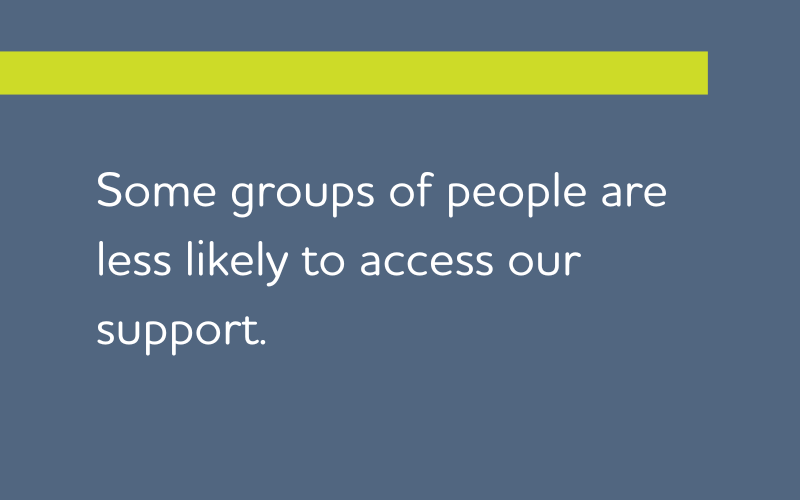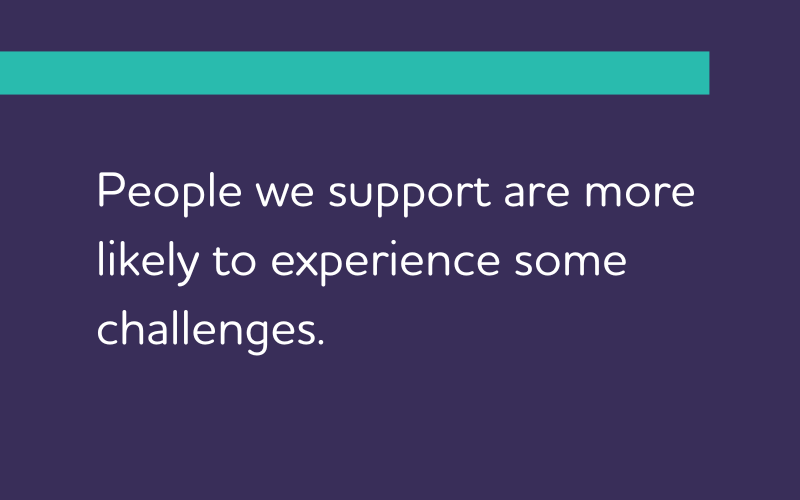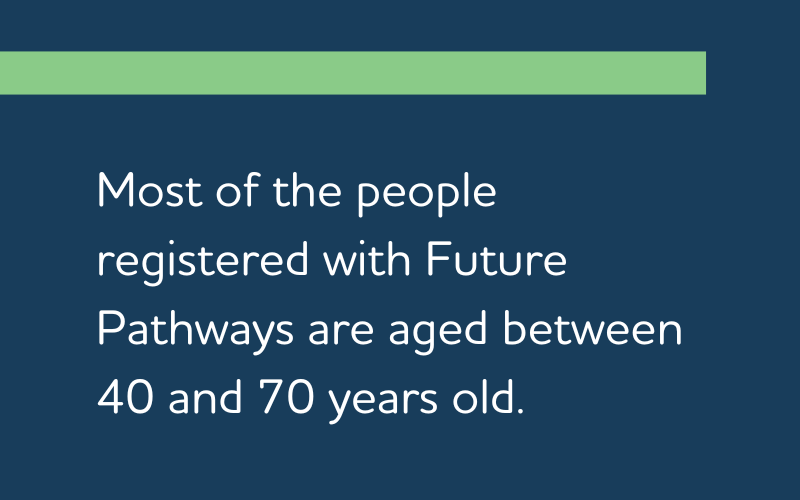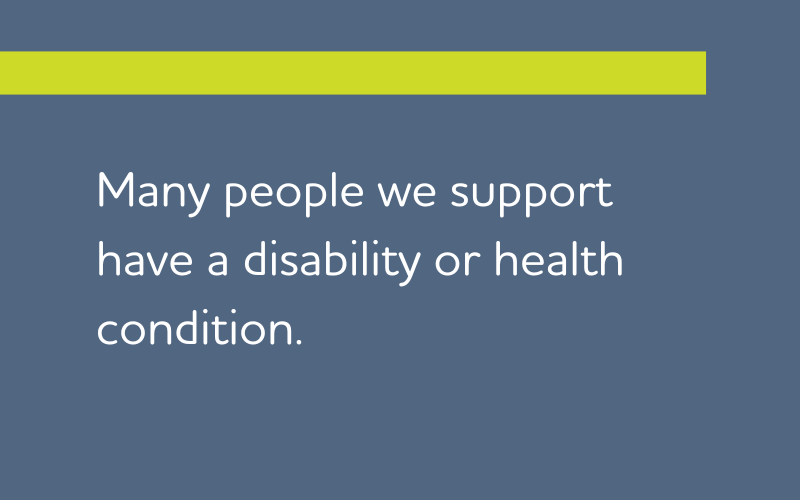We are pleased to share our latest report, Identity, Equality and Access: Learning about people we support. The report focuses on the demographics and life experiences of people supported by Future Pathways.
Through this research, we aimed to learn more about whether the population of people we support is representative of the wider population of people who have experienced childhood abuse and neglect. We believe that by learning more about this, we can make our support more accessible, both to people we support and people who have not yet registered with us.
Limited research has been undertaken about the demographics or life experiences of people who were abused or neglected in the Scottish care system. Future Pathways is one of the few services in Scotland exclusively supporting people with lived experience of in-care abuse and neglect. Although there are obvious limitations to our data set, we believe that this research is a valuable contribution to a currently under-represented area of research.
Identity, Equality and Access offers a starting point for services, including our own, to improve awareness about people who experienced in-care abuse and neglect. In addition, we hope this work prompts reflection from Future Pathways, our Delivery Partners and colleagues across the wider sector in how we can enhance access to support by considering people’s specific needs.
We are keen to consider how information people share can be leveraged to influence wider positive change in response to the impacts and inequalities of childhood trauma. Many people we support are keen to effect change, not just at Future Pathways but also to services and policies beyond. Gathering data and sharing our learning can help improve our own service and other services, enabling people to enact their rights to access the resources, care and support that is right for them.
This project has given us the opportunity to consider how we gather and record data, and how we can do this in a way that best suits the people we support. We encourage services to take a trauma-informed approach to data gathering and recording, acknowledging the specific needs or concerns that people with lived experience of in-care abuse and neglect might have in relation to their information and identity.
This research is part of a learning journey. We will continue to analyse the demographic and life experience data shared by people we support, and we will share our learning as our collective data increases. We remain committed to raising awareness and contributing to research that can benefit people with lived experience of abuse and neglect in the Scottish care system.
WHAT WE LEARNED

For example, we might not be reaching people who are transgender, people who are bisexual, gay, or lesbian, and people who belong to Black, Asian and mixed ethnic groups.

At least 15% of our respondents had difficulties with literacy. 74% of people registered with Future Pathways living in Scotland, were living in some of the most deprived areas. In the wider population, over a third of people who experienced childhood abuse by a family member were also abused by a partner as an adult.

People registered at Future Pathways were aged between 19 and 93 years old, and the average age of people registered with Future Pathways was 52. In the wider population, more older people disclose childhood abuse than younger people.

At least 48% of our respondents had a disability. In the wider population, people who experienced childhood abuse are at higher risk of anxiety, depression and psychiatric conditions.



